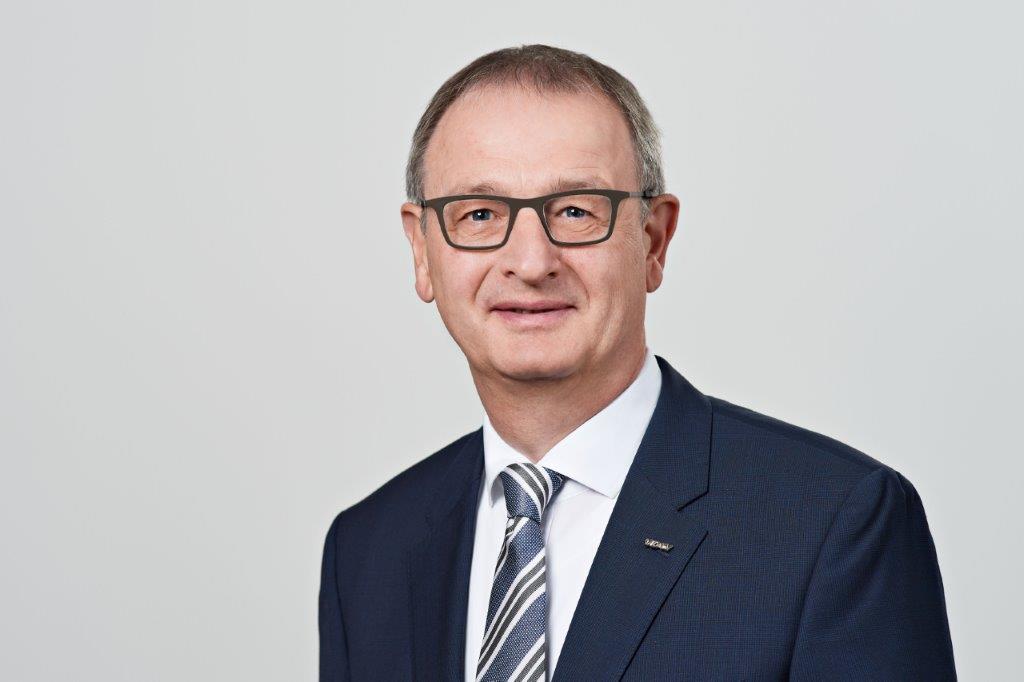Cobots Take Center Stage at EMO Hannover 2023

Automation is a topic of great interest to industry right now—and also a focus topic at EMO Hannover 2023, which will be opening its doors from September 18-23. Many of the approximately 1,800 exhibitors are expected to be showcasing products and services in this field.
“Automation has been a major topic in recent years for cost reasons, but it is now also attracting renewed attention as a result of the shortage of skilled workers, the uncertainties in the supply chain, and also the increasing demands with regard to sustainable growth,” says Dr Wilfried Schäfer, Executive Director of EMO organizer VDW (German Machine Tool Builders’ Association), Frankfurt am Main. In any case, there are now record levels of robot installations, with more than 570,000 new systems being installed worldwide last year, according to forecasts from the International Federation of Robotics.
Companies across all industries are investing heavily in automation to help them maintain their productivity and competitiveness but also to boost their resilience and flexibility. Automated processes also allow them to meet increasing demand more effectively.
|
Dr Wilfried Schäfer , Managing |
|
Sina Isabell Springer , Global Partner |
‘Cobots’—collaborative industrial robots—constitute a special niche within the robot market. Demand is increasing significantly here, too. “Today’s market offers a wide range of cobots with longer ranges which are capable of handling higher payloads. Entire business ecosystems are now developing around collaborative industrial robots. These include not only the robot itself, but also compatible plug & play accessories such as grippers, image processing systems, measuring systems, software, industrial electronics, feeding systems and even online application manufacturers,” explains Schäfer.
Cobots are spreading very quickly throughout industry, which is why EMO Hannover is now offering its own Open Space Cobot Solutions Area on Stand A54 in Hall 9. The nine exhibitors on the joint stand—Elite Robots, Fanuc, Hannweber, Ifsys, Kassow Robots, Kuka, Lorch, Robco, and Sick—are keen to support their customers as they move into new business areas. They will be showcasing AI solutions for mobile robots and augmented reality applications, for example. A further key factor is that the robots are easy and intuitive to reprogram when requirements change. Two examples: Kuka, based in Augsburg, Germany, is presenting a flexible and easy-to-use cobot. Visitors can check this out for themselves by putting a hand-guided and programmable unit through its paces at the event. Benjamin Woltmann, Marketing Manager, Kuka Germany, says: “Our declared aim is to make the programming and operation of a robot as simple as that of a standard smartphone.”
Robco GmbH from Munich is pursuing a similar strategy. The company has combined a patented modular robot with an easy-to-program software suite and with a highly flexible and fully networked industrial robot. “This allows us to radically rethink how products are made,” says Sina Isabell Springer, Global Partner Manager, Robco. The modularity of the robot guarantees maximum flexibility; it can be reprogrammed for a new process in a short time if the project or the requirements change. Connecting up a special robot kit allows wear and tear or potential problems with the robot to be checked remotely and minimized at an early stage.
Exhibitors will be able to showcase their highlights not only on the joint stand, but also in the Innovation Forum in Hall 9, G32.






 Facebook
Facebook.png) Twitter
Twitter Linkedin
Linkedin Subscribe
Subscribe